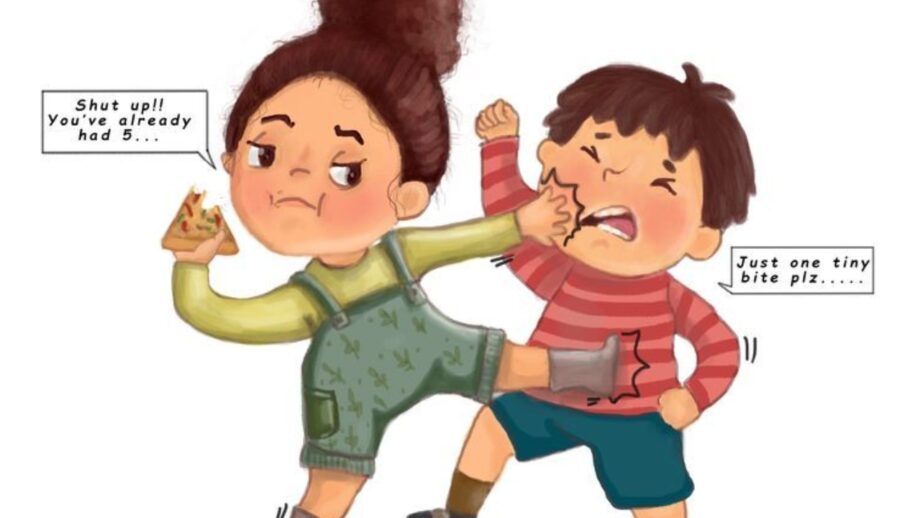Despite the fact that many youngsters are lucky enough to become closest friends with their siblings, brothers and sisters regularly argue. (They regularly go from admiring and despising one another!) Sibling rivalry is common before the birth of the second child and continues as the children grow up and compete for everything from toys to attention. Children’s shifting needs as they move through different developmental stages can have a significant influence on how they interact with one another.
Reasons Kids Fight
Sibling rivalry can be sparked by a variety of factors. Most siblings compete or feel some kind of envy toward one another, and this can lead to arguments and squabbles.
For instance, toddlers are naturally possessive of their toys and other possessions and are still practicing asserting their will, which they do often. As a result, the bigger child may become hostile if a younger sibling picks up the toddler’s toy.
Here are some actions to think about before becoming involved:
Keep children apart until they are calm.
Sometimes it’s wise to wait a little bit before bringing up the dispute and just give them some space. Otherwise, the conflict can get worse again. Wait until the feelings have subsided if you wish to turn this into a teaching moment.
Don’t focus too much on identifying the offending child. Every participant in a fight bears some of the blame because it takes two to fight.
Next, make an effort to create a “win-win” scenario where each child benefits. Maybe there’s a game they can play together instead when they both want the same toy.
Your children should see and understand that love has no boundaries for you.
Tell them they are loved, valued, and safe, and assure them that their needs will be satisfied.
If your kids fight over the same things all the time, like video games or who gets to use the TV remote, set a schedule of who gets to “own” that item each day of the week. Take away the “reward” entirely if they continue to argue about it.


